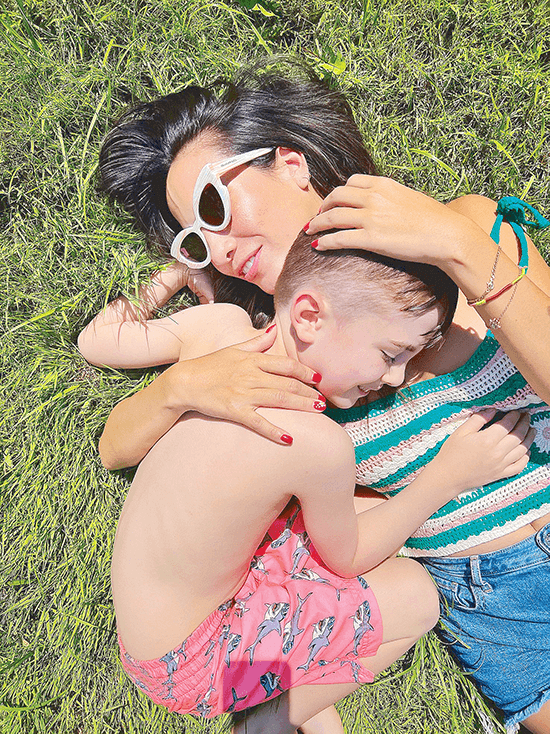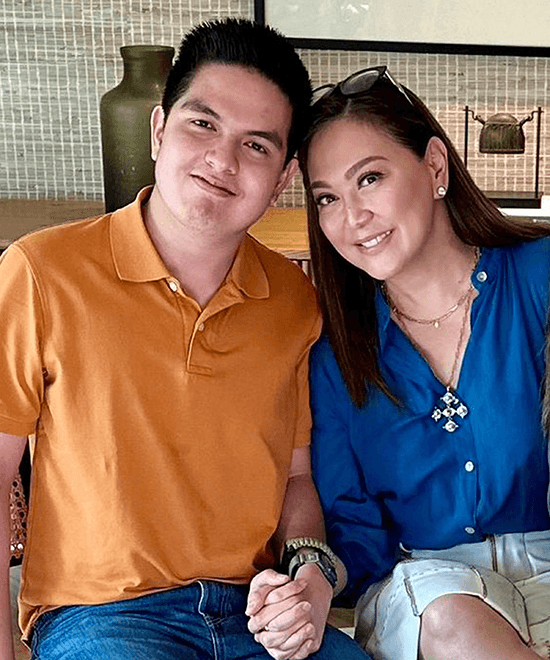Raising a neurodivergent child
When I read the report, my heart dropped. All the air left my lungs. I had never been so fear-stricken in my life. My youngest son, Max, has autism. I couldn’t really make sense of it all. The only thing that jumped out to me was that he rated high on a scale: 7/10 was all I saw. This was serious stuff. I found myself a crumpled mess on my bed. It was the very beginning of the pandemic, when lockdowns were at their worst and my husband and I had recently separated. I was alone with a million thoughts racing through my head. What was his life going to look like? How difficult were things going to be for him? What challenges would arise? Would he be able to live “normally”?
I sobbed all night and vowed that when morning came, I would no longer shed a tear about this again. I had to fight for my son and give him whatever he needed. Immediately.

Max was four years old at the time; today he is seven. He is an incredible little boy. I am only able to share openly about this now because Max himself knows he has autism and is proud of his own progress. He’s worked hard, having commenced intensive therapy as soon as we found out. Initially, he attended every day, then progressively it became three times a week, then twice a week, to recently full integration into a “normal” school. Today he still has some support, but only on an as-needed basis—and he is proactive about advocating for himself when required.
Many people told me that perhaps I was exaggerating. I can see why. As a toddler, Max was always so sweet, friendly, and bright. He was very verbal, always chatting, yet he preferred to play on his own. We would often joke, “It’s Max’s world and we’re all just living in it!”
In hindsight, I suppose the signs were there: he was obsessive about dinosaurs, needed things to be “accurate” or else he’d throw a fit, he was sensitive to light and sound, hated birthday parties and big crowds. But I chalked it all up to individual quirks. He used to have big meltdowns. Really big ones. Some that would last for over an hour. I just kept telling myself it was the “Terrible Twos” or “Terrifying Threes”—he would get over them.
Eventually, when I applied to send him to the same school as his brother, his application was rejected. I begged. We did another trial sit-in, yet still, the answer was no. They couldn’t really tell me why. “He had problems with transitions.” He had refused to leave the playground or the fish tank. It was then that someone close to me pointed out that perhaps I should bring him to a developmental pediatrician.
Once, during a dinner at home, we had a table for six people set for five as only five guests were coming. Max saw this and asked to place another setting. After explaining only five guests were coming, he begged, “Please? Even just a little plate?” The asymmetry bothered him. Why would a four-year-old be so concerned over a place setting? I booked an appointment right away.
This was the best decision I have ever made.
You have to remember that when you are raising a child on the autism spectrum, you're not raising just any child. It takes extra. Extra patience, extra work, extra research, extra perseverance, extra determination.
There is so much stigma about neurodiversity. I’ve met people who have the resources and financial means available to them yet refuse to get help for their child because somehow people on the autism spectrum are “less than.” Our own ego blocks us from giving children the help they truly need.
I have a wonderful developmental pediatrician, Dr. Jan Harold Sia, who was recommended to me by a friend. He is a kind and gentle soul who is encouraging and, most importantly, explains things very well. What struck me was what he told me when we first met: early intervention is key. Before seven years old, the brain is still forming and creating neural pathways, and if we begin therapy early it is possible to “rewire” the brain. After seven, you are just giving the child coping skills. This is obviously an oversimplified explanation, especially because each individual is unique and autism presents itself as a spectrum, manifesting with many different symptoms and challenges.
But the general idea is to act now. Don’t wait.
“Stop asking yourself, why me?” says Karen Davila, journalist and autism awareness advocate. “Already move forward and know this, that God has equipped you to be able to do what needs to be done.”
Karen’s eldest son, David, is on the autism spectrum. Karen and David guested on the pilot episode of my podcast, Soulful Feasts, and we talk about their journey together.

“The biggest problem of parents isn't the information, it's the acting. Just commit to it the way you would commit to a workout, the way you would commit to a partner, the way you would commit to your work. In treating your child on the autism spectrum, it is the same level of commitment.”
During the episode, Karen and David made an exciting announcement: at 21 years old, he was accepted to the University of the Philippines’ Fine Arts program. I can’t even begin to describe how emotional and proud we all were to hear the news! Best to just tune in to the podcast, but one thing I can say is that David has big dreams and feels empowered to achieve them.
“I want to be an architect!” he says about his path after art school. Thanks to his incredible and dedicated mother, family and community, this child—who was non-verbal at a young age and had regular seizures and tantrums—is integrating into adulthood and on his way to realizing his fullest potential.
“It takes a village to raise a child,” Karen emphasizes. “It really is true, and you have to remember that when you are raising a child on the autism spectrum, you're not raising just any child. It takes extra. Extra patience, extra work, extra research, extra perseverance, extra determination. Even the love, sometimes, kailangan mo hugutin. As a mother, you’re not sweet all the time, you’re tired, empty, drained… so even the love, you have to pull out extra.”
I am incredibly grateful for the village I have. For Sebastian, his incredible big brother who has so much patience. For my partner in all this who attends every meeting and appointment and hugs Max extra-tight when he needs to feel safe. For all the loved ones around us: the doctors, the therapists, the teachers, the friends, and my family who all pull out that little extra for Max.
Today, he is blossoming because of their support. Fully integrated into a big school, he has gained confidence, made close friends, found his tribe and was chosen to be on his second-grade student council! His brilliant mind, unique way of seeing the world, courage, and determination inspire me every day. What a gift!
For him, having autism means he has superpowers. And he is a hero in every way.
***
To learn more about Karen and David’s story as well as her invaluable insight, tips, and wisdom on raising a neurodivergent child, catch the pilot episode of my new podcast—Soulful Feasts with Stephanie Zubiri—on Spotify and Apple Podcasts. Brought to you by Anima Studios. A new episode drops weekly every Tuesday! Link to show.


